
The state of plastics
Many Co-op owners and shoppers have shared their interest in reducing plastic usage in the store. From bioplastics, to compostable plastics to recycling options, the Ashland Food Co-op continues to research what works best as we move towards our goal of being a zero waste store. Here is where we stand.
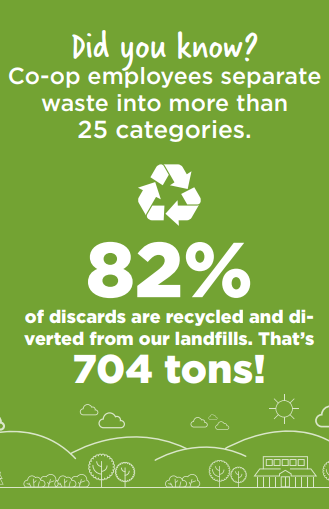
Right now, there is a trade-off in terms of food and plastic waste. Plastic is extraordinarily unique in its ability to preserve food and prevent spoilage and waste. But the trade-off is its very long lifespan.
Reducing plastic waste - by using alternative storage materials, or going package-free when possible - results in more food spoilage and waste, which can sometimes have a bigger ‘carbon footprint’ than plastic use alone.
The best way to summarize: as of March 2019, no perfect solution for plastic alternatives exist.
This isn't meant to make excuses for waste - as you may know, we already divert over 80% of our waste from the landfill. But it is important to know where things stand, and what some of the many decision-making factors are, that go into this debate about containers and plastic. Let’s break it down:
Bioplastics
Bioplastics often come from unsustainable sources - for example, monocropped GMO corn that could be used to feed people, or is grown on the other side of the country and requires a large carbon input to deliver.
As the name implies, bioplastics often have lifespans as long as petroleum plastics - they’re still plastic! The “end of life” assessment for bioplastics is not much better than petroleum plastics. For example, a single-use plastic fork made from GMO corn will still end up in the landfill.
Though there are recyclable and compostable bioplastics, they often require specialized machinery at waste disposal sites to be broken down. Our region does not currently have that infrastructure, and the additional carbon footprint to ship these materials elsewhere can quickly outweigh the ‘bio’ benefits.
The Co-op continues to explore options in this area: more readily compostable bioplastic bags are hitting the market which we will continue to test.
Alternatives to plastic
AFC has brought in cardboard packaging for some produce, like cherry tomatoes and strawberries. And yes, they are completely recyclable!
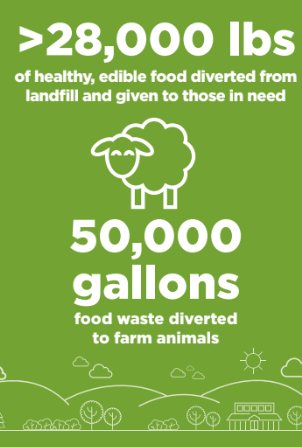
However, it can be difficult for customers to visually connect with the product - can you tell how juicy and ripe those strawberries are through the cardboard? Without that visual connection, a shopper may be hesitant to buy the product, inadvertently leading to more food waste (because the product stays on the shelf longer).
Cardboard also leads to more spoilage because of the lack of light and its ability to carry moisture (leading to molding).
Is generating more food waste an acceptable trade-off to having recyclable and compostable packaging? This is another instance where analyzing production inputs and requirements, instead of just ‘end-of-life’ issues for packaging, gives a better idea of the sustainability of a packaging type.
Plastics recycling
Many plastics are no longer being accepted by local waste management services. Generally, white, rigid plastics (example: yogurt containers) are still being recycled; clear, non-rigid plastics (soda bottles, salsa containers) are not. So buy smart!
Clamshells are a common area of concern. The Co-op is very lucky to be able to recycle plastic clamshells from products that were purchased at AFC. You can bring those clamshells back into the store for recycling. Even better, this recycling is more carbon neutral because the clamshells hitch a ride back to Eugene on existing truck routes (rather than a one-off transit run).
If you're purchasing greens, you can also bring your own container to fill from the bulk spinach and baby greens bins. Alternatively, OrganicGirl salad clamshells are made of 100% recycled plastic.
Our commitment
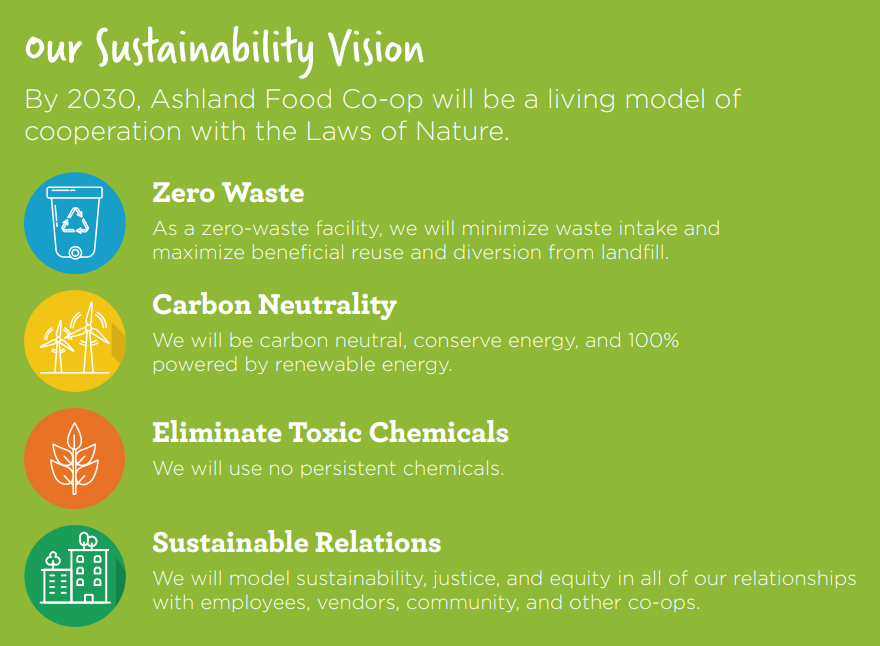
It’s easy to see that with the options available right now, there’s always a trade-off. In our own store and through the National Co-op Grocers network, we continue to look for a solution that is not petroleum-based, non-GMO, and that can be recycled or composted fully. When that solution arrives, we will be ready!
Right now, you should aim to reduce your overall plastic consumption when making purchasing decisions; choose reusable packaging when you do have to purchase plastic (clear salsa packages make great storage for leftovers); and choose recyclable plastic (white plastic and clamshells) if you think you’ll only get one use out of the packaging.
For some additional reading on the topic of plastics and packaging, check out this report put together by the Oregon Department of Environmental Quality.
More Co-op News
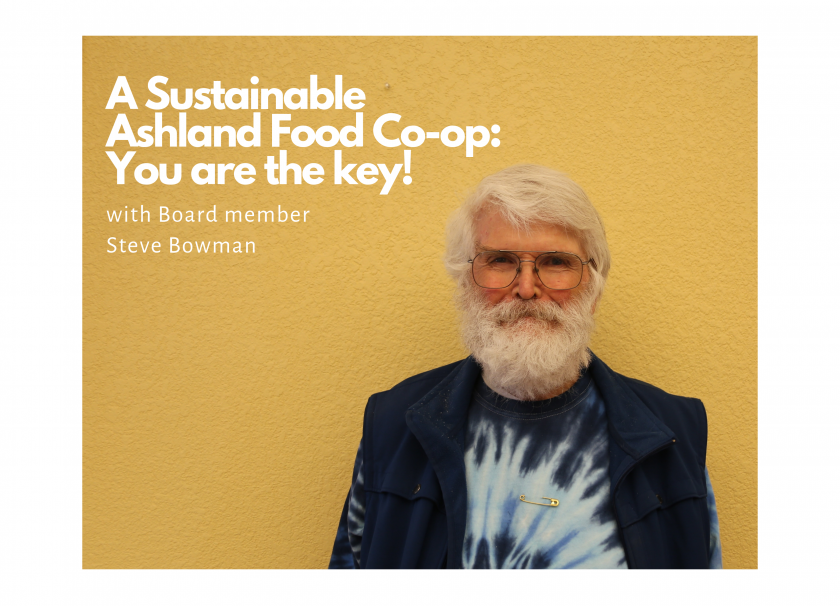
Sustainable Ashland Food Co-op: You are the key!
By Steve Bowman, AFC Board Director
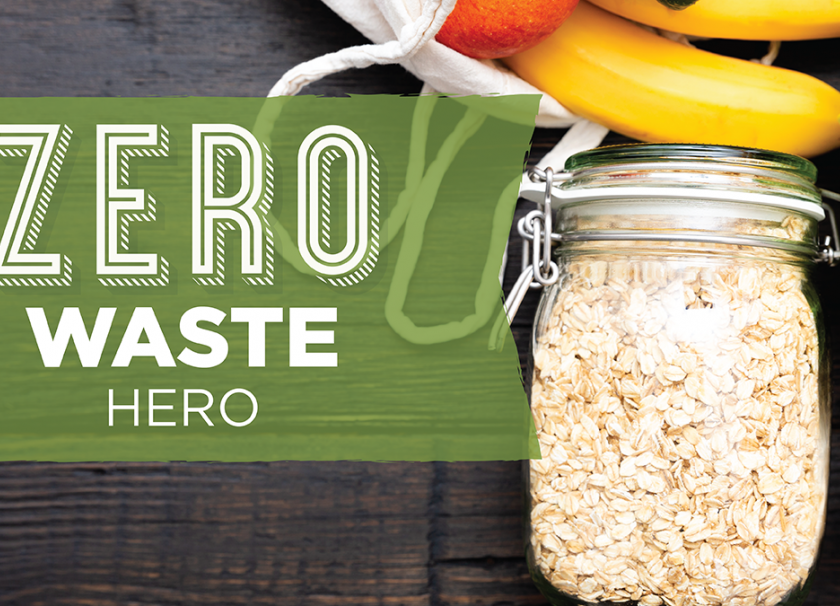
Tips for a Sustainable Kitchen
By Mahlea Rasmussen, Education Coordinator
Outside of work I spend a lot of time in the kitchen. I find it a soothing space to create nourishing meals and lasting memories. I find it essential to be as eco-friendly as possible and a few changes can transform your kitchen into a sustainable center of your home.
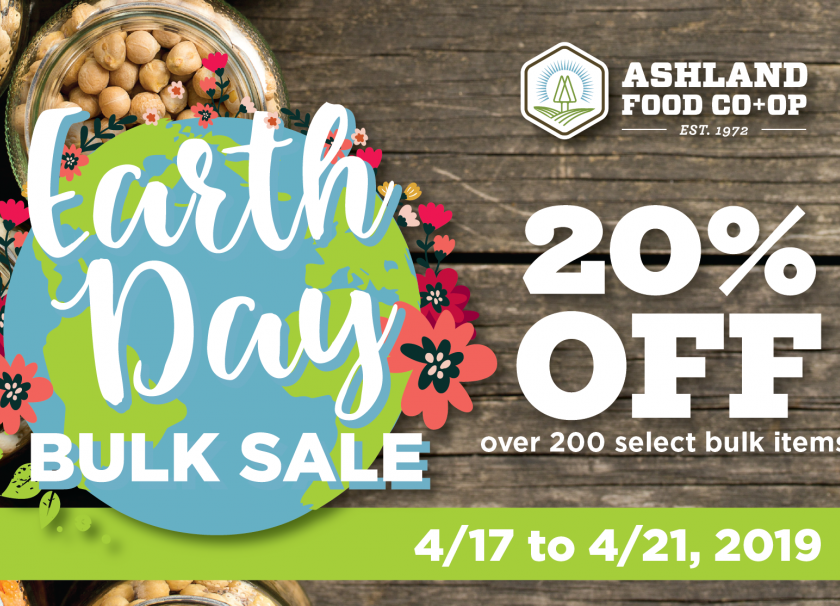
Earth Day Bulk Sale! April 17-21
Save money while working towards a more sustainable shopping experience! The Co-op bulk department is a great "first stop" for your grocery lists - everything from hummus mix to local honey to pet food is available. Plus there's less waste, all the way from shipping to ended up in your shopping cart.
Check out a quick tour below:

Film festival giveaway
Enter your name and email below to be entered to win two film vouchers for the 2019 Ashland Independent Film Festival.
No purchase necessary. Giveaway is not endorsed or sponsored by AIFF. US residents only. Entry will be closed at 5pm PT on Monday, April 15.
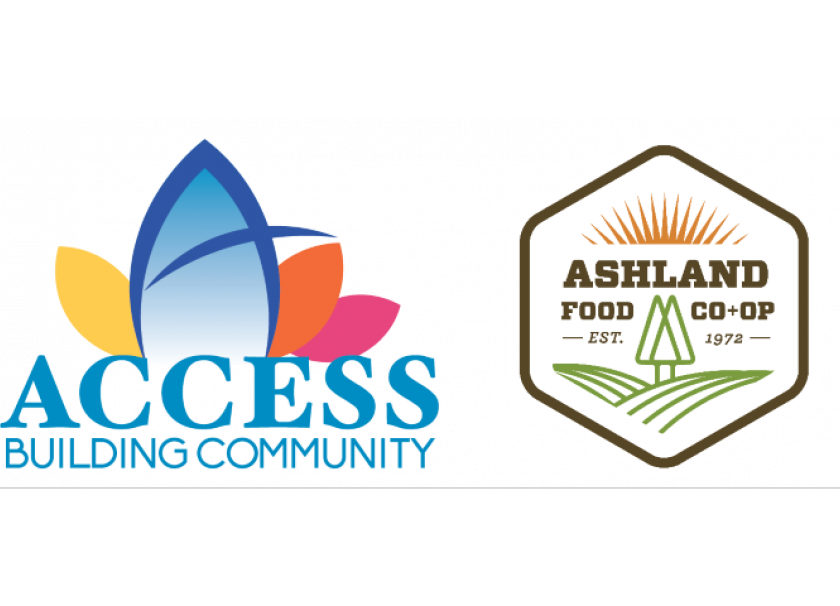
Ashland Food Co-op Celebrates 20-year Partnership with ACCESS
We are proud of a partnership with ACCESS that has benefited the community immensely over the past twenty years. Read on for more about the partnership, or watch the short video below.
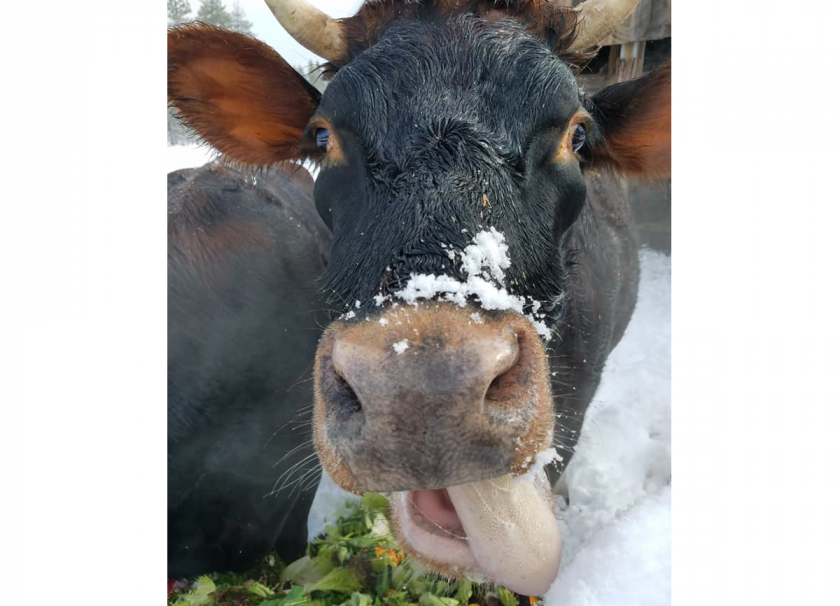
Food waste at the Co-op
By Rianna Koppel, Sustainability Coordinator
How many times in the past month have you reached back in the fridge to snack on some fresh strawberries only to discover… mold?! In the United States, 40% of food is wasted every year. Luckily, how we address food waste can have a major impact. According to Paul Hawkin’s Drawdown, reducing food waste is #3 on the list of best ways to reduce carbon dioxide emissions. At the Co-op, we use the EPA’s Food Recovery Hierarchy as a guide to bettering our own practices.
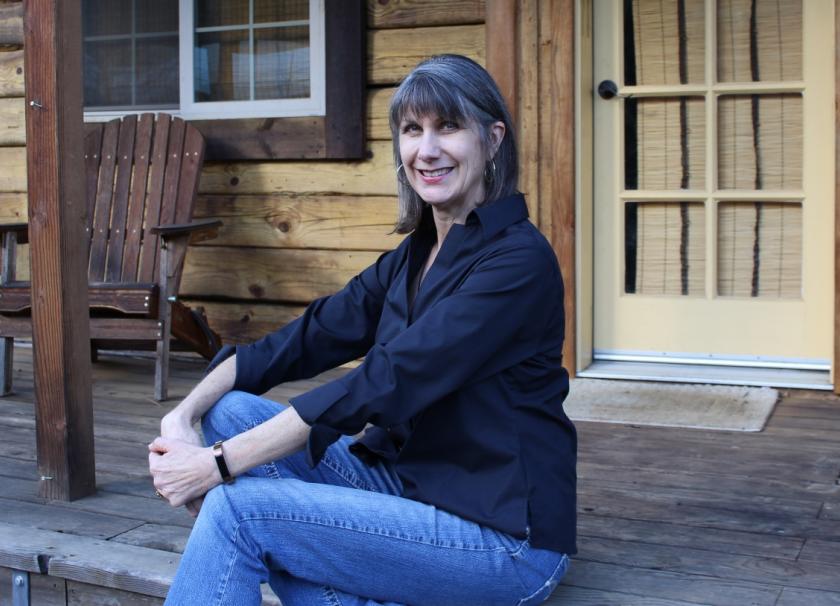
Meet Cooking Class Instructor, Gianaclis Caldwell
Get to know Gianaclis Caldwell ahead of her class, "Easy Mozzarella and Burratta - From Scratch!" on March 7. Gianaclis is the author of the award-winning book Mastering Artisan Cheesemaking and owner of Pholia Farm.
Tell us how your love of cooking (or cheese) and food began.
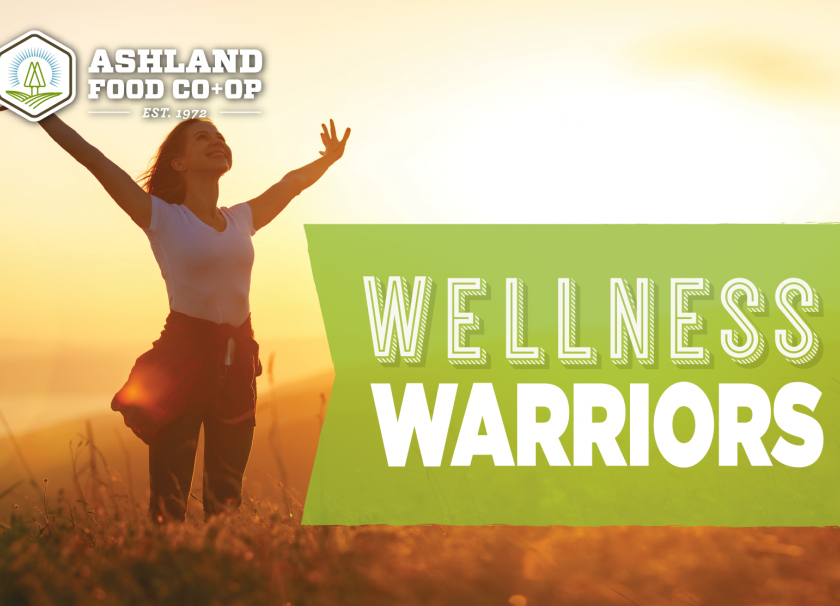
Wellness Secret Weapons
There are still plenty of colds and viruses making their rounds, and we want to help you better defend against them!
In January, we asked on social media what kind of secret weapons you use in the winter to stay healthy. We had a lot of responses, so we'll start with the All-Stars.
With your initial recommendations, our Wellness team reviewed the suggestions and picked the products with the highest quality standards and best feedback. Check those out below.
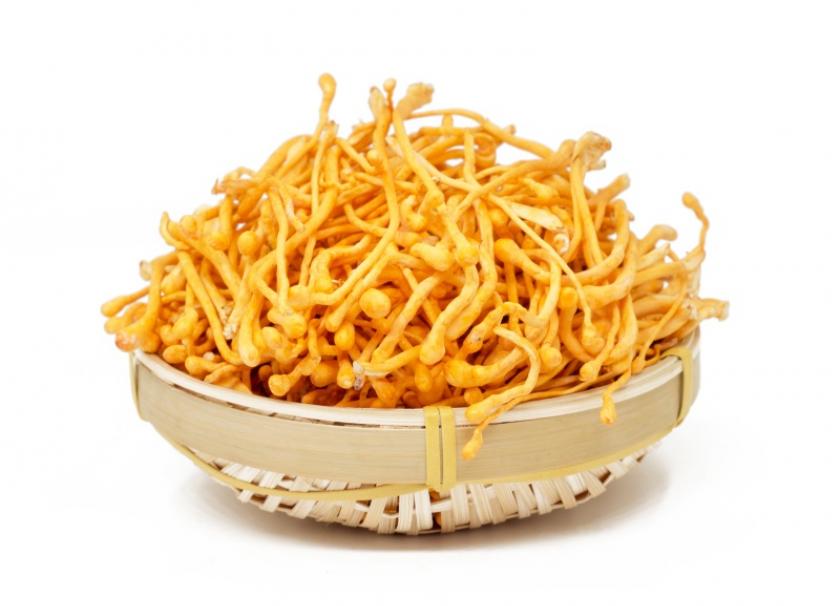
Mushrooms for wellness
You may have heard about the fascinating discovery that trees can communicate with each other. What’s the secret? The mycelia - tiny strands of fungus - in the soil form a vast underground network through which trees send chemical signals to their neighbors.
The mycelia differs from the fruiting body of the mushroom, which is the reproductive component that contains spores and is thought to be higher in Beta Glucans.
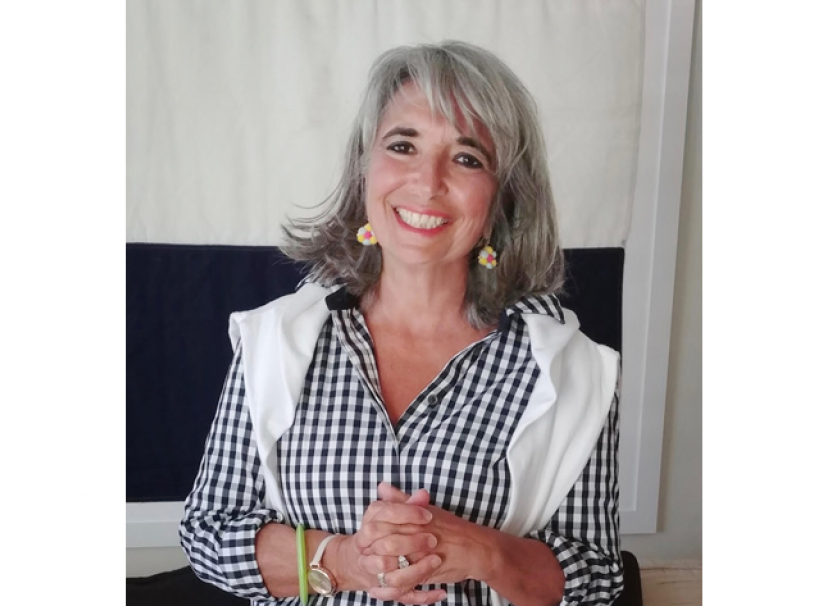
Meet class instructor, Joette Calabrese
This class instructor profile is connected to the February 27 free lecture, "You, Too, Can Beat the Flu!"
On an early Kolkata (Calcutta) morning, thick crowds gather outside the gates of the hospital while officials yell out "Brain tumor, kidney failure, cancer patients form a line here!” Hopeful patients, family members and caregivers arrange themselves by disease symptom.
What to do with all this citrus?!
So you grabbed a few too many extra oranges and grapefruits and lemons (and some finger limes, and some satsumas…), and rather than watch them go bad, we want to provide you with some ideas on how to reduce waste. You’ll also get to enjoy citrus in a lot of new ways!
There are many guides and recipes across the internet (like this one by our friends at Grow Forage Cook Ferment), so here are a few ideas to get your creative and citrus juices flowing.

Update from the General Manager: "Food for Paradise" campaign
Ashland Food Co-op's General Manager, Emile Amarotico, ends 2018 on a very uplifting note with a report back on the "Food for Paradise" donation campaign. Watch the video below, or read on for an extended written update.
Hello, this is Emile Amarotico, the general manager of Ashland Food Co-op with an update on the Co-op’s Food for Paradise initiative.
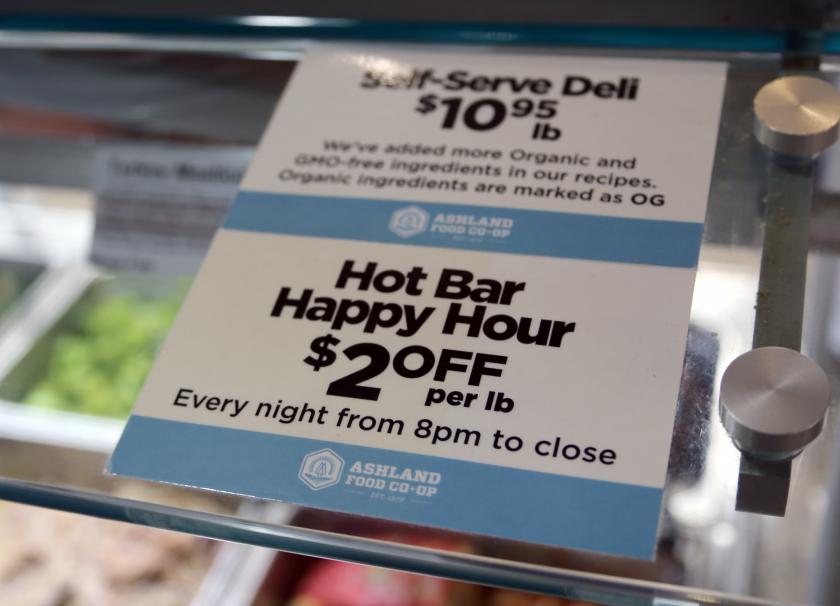
5 Fresh Ways to Save at the Co-op
We’ve all been there: your bank account is looking thin after a month of celebrations, but you’ve made a New Year’s resolution to save up for a big purchase later in the year
Now’s the time to make some changes to your spending - but that doesn’t mean you have to skimp on quality goods at the Ashland Food Co-op.
These are some lesser known ways to save at the Co-op. Think of them like ordering off the secret menu.
Savings Level: $
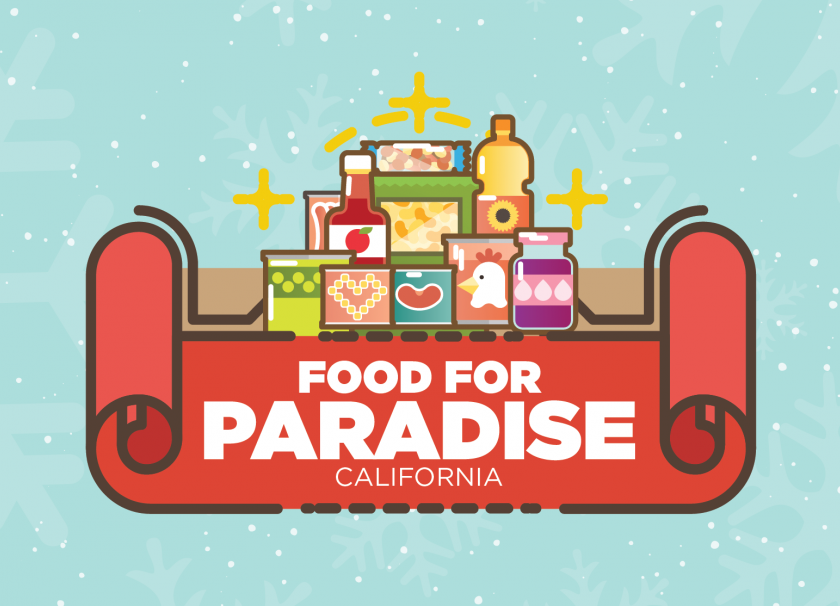
Board Report: How "Food For Paradise" Got Started
By Mira Wonderwheel, Board of Directors
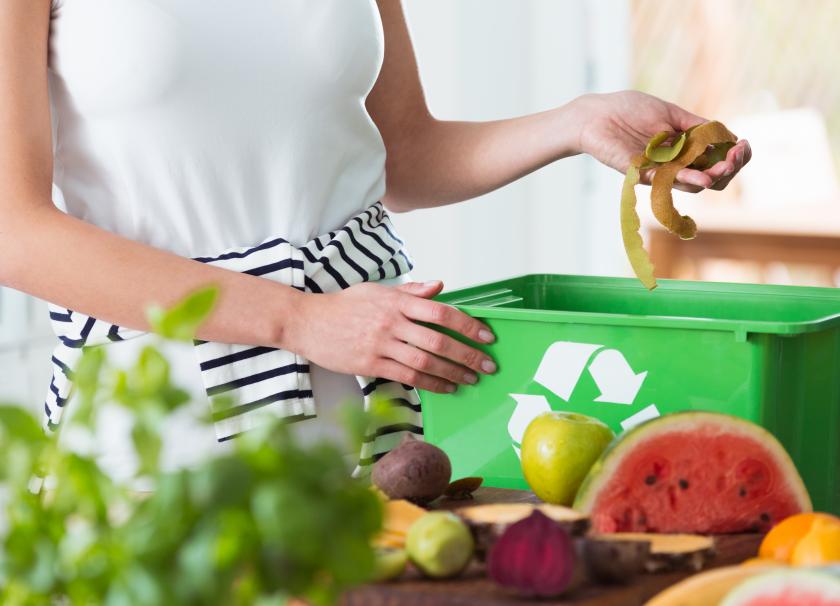
4 Ways to Reduce Your Food Waste
It’s the New Year, our favorite time for goal-setting, making positive resolutions, and shifting our impact. One of the Co-op’s goals is to become a Zero Waste facility. Our staff works to divert as much food waste as we can - and we hope our member-owners will join us in this goal too.
